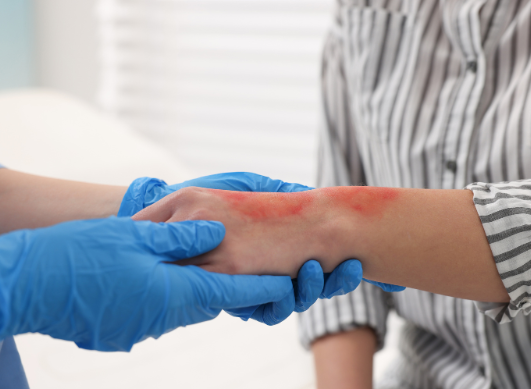- Home
- Forums
- General forums
- News from the media
- Is Komodo dragon blood the key to new antibiotics?
Is Komodo dragon blood the key to new antibiotics?
- 49 views
- 0 support
- 1 comment
All comments

Unregistered member
25/04/2017 at 08:26
They say dog saliva has similar properties and I should think that a lot of animals have similar properties too, as they all lick their wound to make them better, they do have Elastoplast, or bandages or Germolene or Savlon to turn to.
Give your opinion
Articles to discover...
Subscribe
You wish to be notified of new comments
Your subscription has been taken into account








Margarita_k
Good advisor
Margarita_k
Last activity on 07/10/2020 at 11:39
Joined in 2016
1,195 comments posted | 154 in the News from the media group
2 of their responses were helpful to members
Rewards
Good Advisor
Contributor
Messenger
Committed
Explorer
Evaluator
The reptile's saliva harbours many different types of bacteria, which somehow do not affect the dragon.
Scientists at George Mason University in the US created a synthetic compound based on a molecule in dragon blood that had antimicrobial activity. They found it promoted the healing of infected wounds in mice.
The study - published in npj Biofilms and Microbiomes - suggests that the protein could potentially be developed into an antibiotic in the future. The scientists believe this could be a step forward in the quest to find new antibiotics that are needed to fight multidrug-resistant pathogens.
Enter the dragon
The dragons that are found on five islands in Indonesia have more than 80 bacterial strains in their mouths, including some that cause blood poisoning or sepsis. The reptiles are not harmed by the bacteria - suggesting they are immune.
Led by Monique van Hoek, the team in Virginia found DRGN-1 worked well on infected wounds in mice against two bacterial strains, the "superbugs" Pseudomonas aeruginosa and Staphlyococcus aureus, also known as MRSA. These two bacteria are particularly stubborn and hard to treat as they have bacteria that stick together to form colonies (or biofilms) that are much more resistant to antibiotics than a single bacterium.
They suggest that DRGN-1 assists wound-healing both through antimicrobial activity and also by promoting the migration of skin cells to close the wound.
Although it has only been tested on mice and on only two bacteria strains, they believe DRGN-1 is a good candidate for additional studies and possible development as a topical therapeutic agent for infected wounds.
BBC Health News